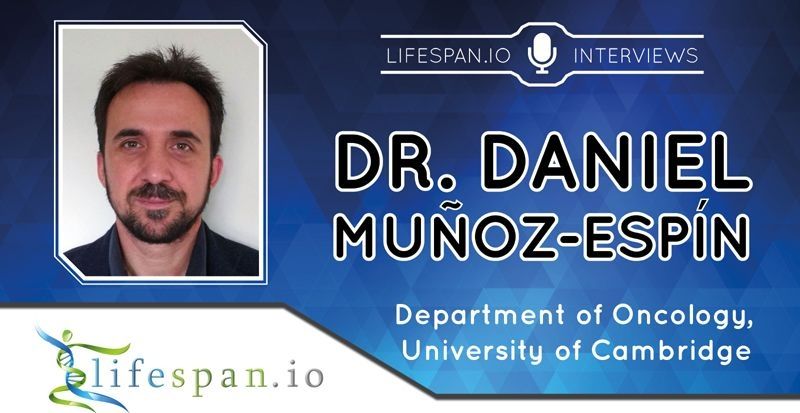During the Fourth Eurosymposium on Healthy Ageing (EHA), which was held in Brussels, Belgium last November, we had the opportunity to meet Dr. Daniel Muñoz-Espín from the Oncology Department of the University of Cambridge.
Dr. Muñoz-Espín received his PhD from the Autonomous University of Madrid, Spain, within the viral DNA replication group at the Centre of Molecular Biology Severo Ochoa, where he worked under the supervision of one of the most famous Spanish scientists, Dr. Margarita Salas. Dr. Muñoz-Espín’s postdoctoral research resulted in several published papers and a 2013 patent focused on DNA replication; he then joined the Centro Nacional de Investigaciones Oncológicas, or CNIO, the Spanish National Centre for Cancer Research, specifically the team of Dr. Manuel Serrano, co-author of The Hallmarks of Aging. The research that Dr. Muñoz-Espín conducted during this time demonstrated how cellular senescence doesn’t play a role just in aging and cancer but also in normal embryonic development, where it contributes to the shaping of our bodies—a process that was termed “developmentally-programmed senescence”, whose concept was very favorably received by the scientific community.
Currently, Dr. Muñoz-Espín serves as Principal Investigator of the Cancer Early Detection Programme at the Department of Oncology of Cambridge University; with his current team, Dr. Muñoz-Espín developed a novel method to target senescent cells, which was reported in EMBO Molecular Medicine. This topic was the subject of Dr. Muñoz-Espín’s talk at EHA2018 and one of the many fascinating others that he discussed in this interview.
